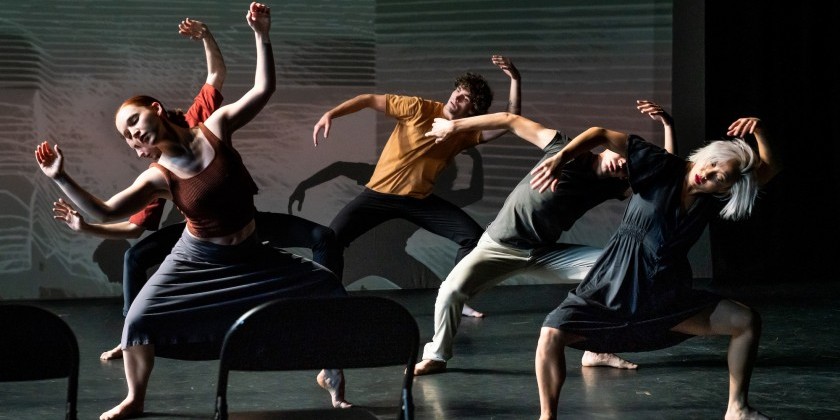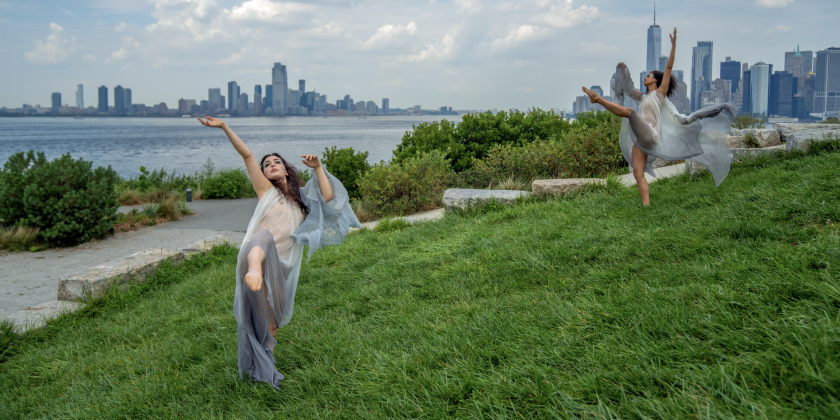IMPRESSIONS: FLOCK's "Familiar," Presented by the 92nd Street Y

September 23, 2021
Choreography and Performance: Alice Klock and Florian Lochner
Music: Michael Wall and Wolff Bergen
Lighting: Julie Ballard
Costumes: Meleta Buckstaff and FLOCK
I’m starting this review with an apology because I wasn’t a good critic during FLOCK’s Familiar at the 92nd Street Y, presented by Harkness Mainstage Series. I didn’t take thorough notes or force myself to have deep, interesting thoughts. Instead of watching with my head, I watched with my heart, and that’s why I’m saying sorry. Because my memories linger more in the area of abstract feelings and less in that of concrete reality.

Familiar presents Alice Klock and Florian Lochner in a series of loosely interconnected duets and solos. Each vignette evokes an emotional tenor, some more overtly than others, but none leans too heavily into the tangible. The twosome opens with a witty sequence where they zip and unzip orange vests, the kind that hunters and hikers wear, eventually connecting them into one supersized garment that shrouds them both. It’s not all fun and games, though, as the mood segues through melancholia, romance, and compassion. In the end, to the tinkle of a music box version of “Amazing Grace,” they exit upstage, leaving on a note of hope.
The design elements stay sparse throughout. On a stage bare except for a plush, dark curtain, buttery lights dim and brighten incrementally. The score unspools as thin but ethereal melodies with little thumping percussion or blasting crescendos. The costumes look pulled from H&M—workaday T-shirts and loose bottoms that allow the body to move freely without drawing attention to it. If it weren’t for the audience, it might feel like you’ve stumbled upon a secret, intimate ritual for two people.

The muted effect of the stage and sound enable a sustained focus on the dancing, where swirling limbs form negative space that evaporates as flesh fills it. The choreography is set, obviously. Yet it resonates as exploratory, improvisational, like they’re discovering how one arm can slink around the other’s body or how this leg can underpin that person’s weight.
Moments of virtuosity spark before dissolving into the slipstream. Klock circles her leg through rond de jambes en l’air, each one ticking higher and higher. That’s a hard (and often hated) ballet barre exercise, but she executes it with ease, her arch pointed, her toes relaxed. One time, Lochner hoists an upside-down Klock over his head. With her legs cleaved in a split, he spins—a move reminiscent of competitive hustle. But he doesn’t do all the heavy lifting. Her petite body supports his entire body as her clasped hands hold his foot. Lochner towers above her, gazing out like Rose in The Titanic.

What resounds more than any wizardry is how quiet it all is. Besocked, the dancers roll through their feet, toe to heel; they transfer their weight with care, not tip-toeing exactly, but mindful not to draw attention to footfalls. Familiar is the first performance hosted on the Kaufmann Concert Hall in something like 50 years (too long), and the hush and tranquility are more welcome than any rowdy celebration would be.












